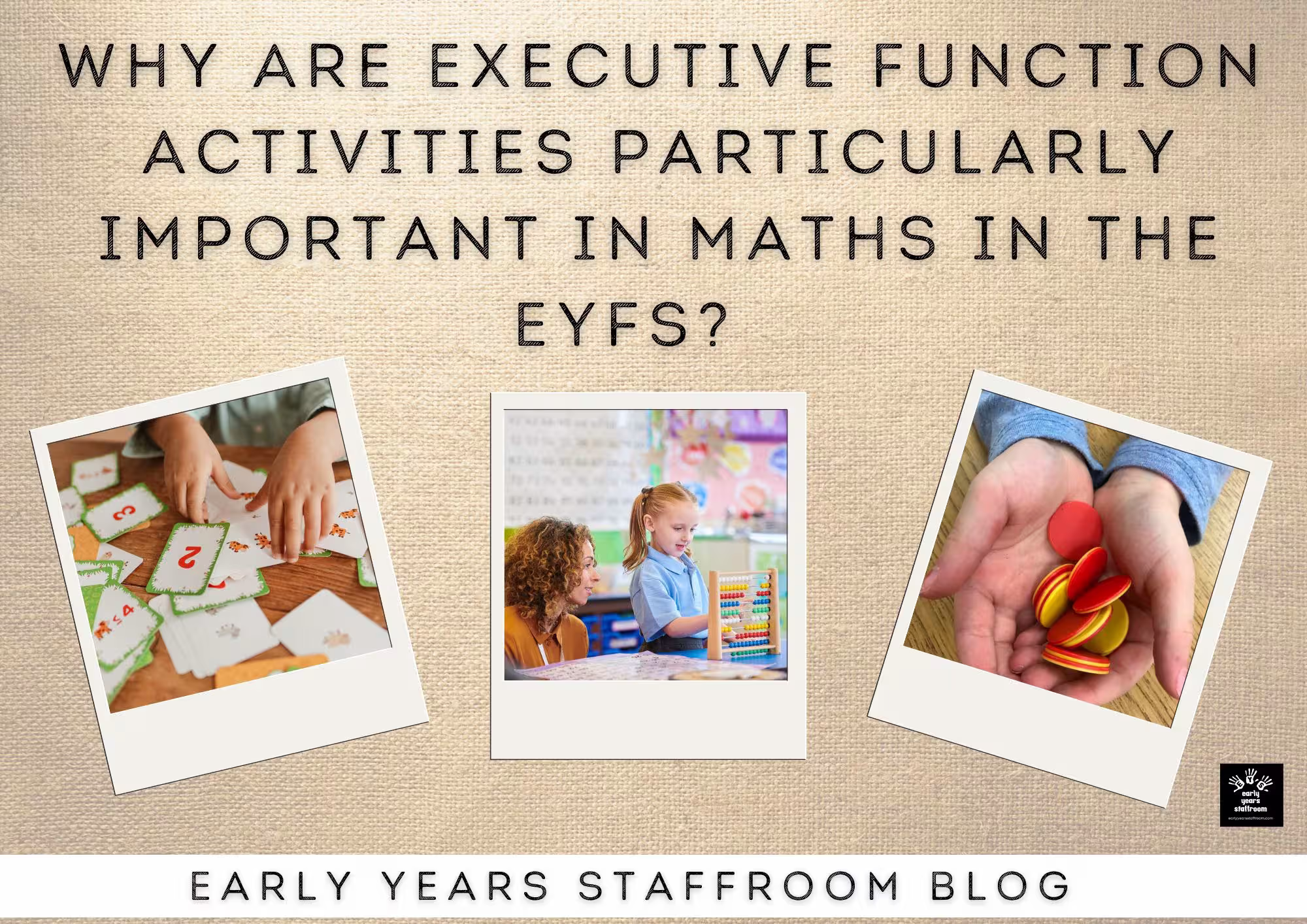Executive function (EF) skills—such as working memory, cognitive flexibility, and self-regulation—are crucial in early childhood education, particularly in mathematics. These skills help young learners process information, solve problems, and persist through challenges. In the Early Years Foundation Stage (EYFS), incorporating EF activities into maths not only enhances numerical understanding but also builds a strong foundation for lifelong learning.
The Role of Working Memory in Maths
Working memory enables children to hold and manipulate information, a critical skill when learning to count, recognise numbers, and solve problems.
Why It’s Important:
- Helps children follow multi-step instructions in maths tasks.
- Supports number recognition and mental arithmetic.
- Enhances problem-solving skills through remembering and applying rules.
- Cognitive Flexibility and Adaptability in Maths – Cognitive flexibility allows children to adapt to new rules, explore different problem-solving strategies, and switch between mathematical concepts.
Why It’s Important:
- Encourages creativity in approaching maths challenges.
- Helps children understand that problems can have multiple solutions.
- Supports adaptation to new learning methods and environments.
- Self-Regulation and Perseverance in Maths
- Self-regulation skills help children stay focused, control impulses, and persist when faced with challenging maths tasks.
Why It’s Important:
- Encourages patience and sustained effort in problem-solving.
- Helps manage frustration when encountering difficulties.
- Develops resilience and confidence in tackling new maths concepts.
- The Importance of Play-Based Learning in Maths
- Integrating EF activities into play ensures that maths learning is interactive, engaging, and effective.
Why It’s Important:
- Makes learning enjoyable and meaningful.
- Encourages problem-solving in real-world contexts.
- Helps children develop key maths skills in a natural and stress-free manner.
Final Thoughts
Executive function activities play a vital role in shaping a child’s mathematical journey in the EYFS. By fostering working memory, cognitive flexibility, and self-regulation, educators can create a supportive learning environment where children develop confidence and resilience in maths. Embedding EF strategies into everyday activities ensures that children not only
excel in maths but also gain essential life skills for future learning.











